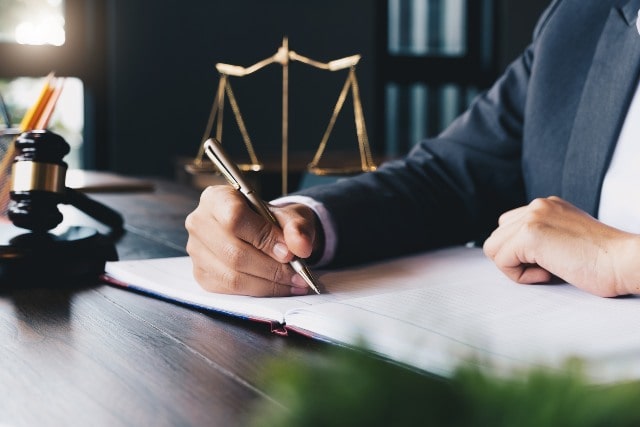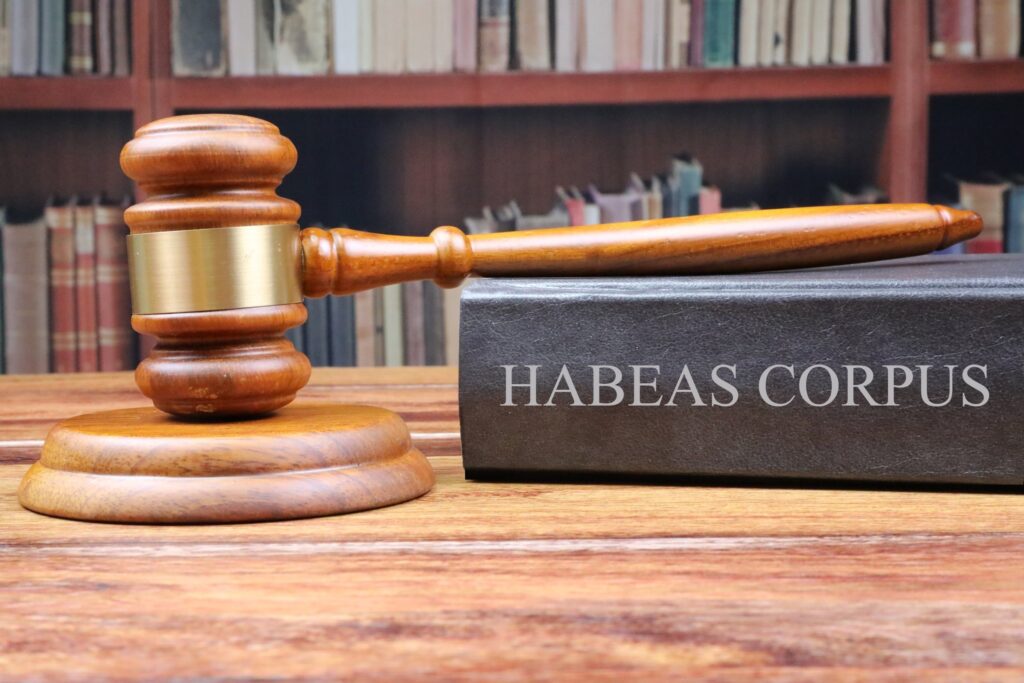Just How a Lawyer Can Assist With Your Habeas Corpus Application
Just How a Lawyer Can Assist With Your Habeas Corpus Application
Blog Article
Understanding the Function of a Post-Conviction Lawyer in Looking For Justice After a Criminal Conviction
In the complicated landscape of post-conviction legal process, the role of a post-conviction attorney is pivotal in navigating the course to justice after a criminal sentence. Past the confines of a test, these attorneys participate in a diverse method focused on revealing brand-new evidence, challenging lawful errors, and promoting for their customers' civil liberties. The details of post-conviction job call for a mix of legal acumen, investigative abilities, and tactical believing to unravel the intricacies of an instance and pursue avenues that may have been forgotten or underexplored. As the quest of justice extends past the boundaries of first proceedings, the function of a post-conviction lawyer becomes a beacon of hope for those seeking to fix injustices and recover their civil liberties within the lawful system.
Post-Conviction Attorney's Investigatory Job
Post-conviction legal representatives engage in meticulous investigative job to discover new evidence, procedural mistakes, or misbehavior that can potentially bring about rescinding a sentence. This investigative phase is important in the post-conviction process as it aims to determine any kind of ignored details or legal errors that might have impacted the outcome of the first trial. Post-conviction lawyers delve right into situation data, witness testaments, and lawful documentation with a fine-tooth comb, looking for any kind of discrepancies or irregularities that could be premises for allure.
Via comprehensive investigation, post-conviction lawyers intend to clarify prospective injustices that might have taken place during the initial trial. They may conduct meetings, seek advice from specialists, and testimonial forensic proof to build a compelling case for their customers. By looking at every element of the legal process, post-conviction attorneys work relentlessly to reveal any kind of elements that might have influenced the judgment. Eventually, their investigatory job plays a crucial role in the pursuit of justice and the prospective reversal of wrongful convictions.
Crafting Appeals and Petitions
In the search of justice after a sentence, experienced attorneys carefully craft charms and applications to existing compelling debates for the reconsideration of legal decisions. Crafting charms and petitions requires a deep understanding of the legal system, focus to information, and tactical reasoning. Post-conviction lawyers assess trial records, identify possible errors or infractions of rights, and develop lawful arguments to challenge the sentence or sentence.
When crafting an appeal, attorneys concentrate on highlighting legal mistakes that may have affected the result of the case. They research case regulation, statutes, and lawful precedents to sustain their disagreements. Petitions, on the various other hand, might entail offering brand-new proof that was not readily available during the test or showing modifications in the regulation that warrant a review of the conviction.
In addition, post-conviction lawyers need to follow rigorous step-by-step policies and deadlines when submitting allures and applications. They should present their debates plainly and persuasively to encourage the court to give alleviation to their customers. Through precise crafting of charms and applications, post-conviction legal representatives aim to safeguard justice for people who have actually been wrongfully convicted or unfairly punished.

Pursuing Post-Conviction Relief
Seeking relief after a sentence needs a tactical and diligent method by seasoned legal professionals. Post-conviction alleviation incorporates an array of lawful systems developed to challenge the legitimacy of a conviction or sentence (top hawaii federal lawyers). These methods consist of submitting activities for a new test, going after appeals, seeking writs of habeas corpus, and offering freshly discovered evidence. Post-conviction legal representatives play a critical function in navigating these intricate treatments, making certain that all lawful choices are explored to fix injustices that may have taken place during the test or sentencing phase.
One typical type of post-conviction relief is filing a petition for post-conviction alleviation, usually based on claims of inefficient help of counsel, prosecutorial misbehavior, freshly uncovered proof, or constitutional violations. Experienced post-conviction lawyers have the abilities and knowledge essential to recognize viable legal cases, perform investigations, and existing compelling disagreements to safeguard relief for their clients.
Using Forensic Proof
When challenging a conviction or sentence, the tactical use of forensic proof can be a powerful device in post-conviction legal process. Forensic evidence includes a large variety of clinical methods made use of to investigate criminal activities and develop realities in court. Post-conviction attorneys can leverage forensic proof to test the validity of sentences by offering new scientific findings that were not readily available throughout the initial test.

Participating In Sentence Alterations
Post-conviction lawyers may explore the possibility of sentence adjustments as a lawful method imp source to resolve disproportionate or unfair sentences bied far in criminal situations. Sentence modifications entail looking for modifications to the terms of an offender's sentence after a sentence has taken location. These adjustments can include lowering the length of a sentence, changing the kind of punishment enforced, or discovering different sentencing options.
Post-conviction legal representatives can go after sentence modifications with various lawful systems, such as filing activities for sentence reduction, appealing for thoughtful release, or working out appeal bargains for lowered sentences. They have to meticulously review the scenarios of the situation, analyze the lawful grounds for seeking an adjustment, and existing compelling arguments to the court supporting the demand for a modified sentence.
Engaging in sentence adjustments needs a thorough understanding of criminal law, sentencing standards, and the details treatments entailed in looking for post-conviction alleviation. Post-conviction attorneys play a crucial duty in promoting for fair and simply results by tough sentences that are unduly harsh or do not straighten with the principles of justice.
Conclusion
In final thought, the role of a post-conviction legal representative is vital in looking for justice after a criminal conviction. Through investigative work, crafting appeals and requests, pursuing post-conviction relief, utilizing forensic proof, and participating in sentence alterations, these lawyers play an important duty in advocating for their customers and guaranteeing that their civil liberties are maintained within the criminal justice system. Their devotion and competence are important in navigating the complexities of post-conviction procedures and accomplishing a reasonable result for people encountering criminal convictions.
Report this page